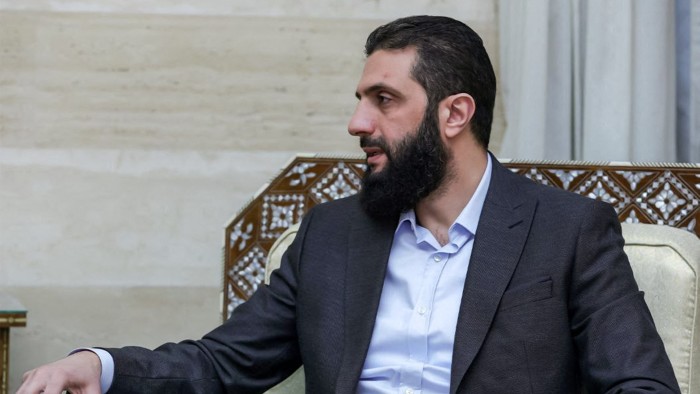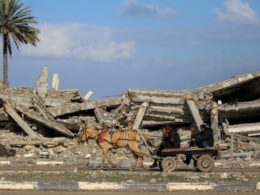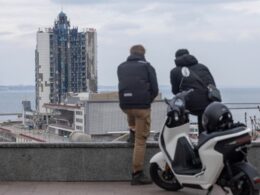Unlock the White House Watch newsletter for free
Your guide to what the 2024 US election means for Washington and the world
President Joe Biden has sent top diplomats to Damascus to meet Abu Mohammad al-Jolani, the leader of the Islamist rebels who toppled Syria’s dictator Bashar al-Assad but are designated a terrorist group by the US.
Barbara Leaf, the state department’s senior Middle East official, is leading the delegation, which also includes Roger Carstens, the US special envoy for hostages, and Daniel Rubenstein, whom the Biden administration has tapped to lead diplomatic engagement with Syria.
The meeting on Friday will be the first formal in-person contact between the US and leaders of Hayat Tahrir al-Sham, which led the rapid offensive that ousted Assad and toppled his regime two weeks ago. The Financial Times first reported on Thursday that Leaf would meet Jolani in Damascus.
The US visit comes as Jolani, who now uses his birth name Ahmed al-Sharaa, urged western countries to lift sanctions on Syria, and as Washington has tried to prevent terror groups including Isis from taking advantage of the power vacuum left following Assad’s fall.
US officials have said they would consider lifting HTS’s terrorist designation, which has been in place since 2018, and sanctions on the Syrian state if the group proves its commitment to “inclusive” rule and maintaining stability.
“If you don’t want that isolation, then there are certain things that you have to do in moving the country forward and make sure you’re moving it forward in an inclusive way . . . to deal with some of the security challenges, whether it’s chemical weapons, whether it’s groups like Isis,” Antony Blinken, US secretary of state, said at an event in New York on Wednesday.
The US trip followed visits to Damascus by officials from France, Germany and the UK this week.
“It’s important to have direct communication,” Blinken told Bloomberg on Thursday.
US officials have been in contact with HTS to discuss Syria’s political transition and stress the importance of finding Austin Tice, an American journalist who was abducted in Damascus in 2012.
The US terrorist designation on HTS and its leader means Washington cannot offer the group material support, but it can communicate with them. Jolani has said Assad’s departure means sanctions on the state should be lifted.
American officials have been encouraged by Jolani’s conciliatory statements and pledges to preside over a united Syria, but said the challenge was now whether his actions would coincide with his words.
The EU is planning to reopen its legation in Damascus. Turkey and Qatar are also reopening embassies they shut after Assad brutally put down a 2011 popular uprising that morphed into a civil war. Ankara, which has links to HTS, has been among the main backers of Syrian rebel factions.
The US is also concerned that Isis could exploit Syria’s power vacuum to regroup and launch attacks. The Pentagon on Thursday disclosed that it had doubled its deployment of US troops in north-east Syria, to about 2,000 from the level of 900 it has said for years were operating there to fight against Isis. The additional troops have been in Syria since before Assad’s fall, said Pentagon spokesperson Major General Pat Ryder.
“If Washington and its allies don’t actively work to ensure Syria’s leaders and groups are those whose interests align with the US, then the vacuum in Syria will almost certainly be filled by a country or group whose interests are adversarial to our own and that of our allies,” said Jonathan Panikoff, a former senior intelligence official now at the Atlantic Council think-tank.
Source link









